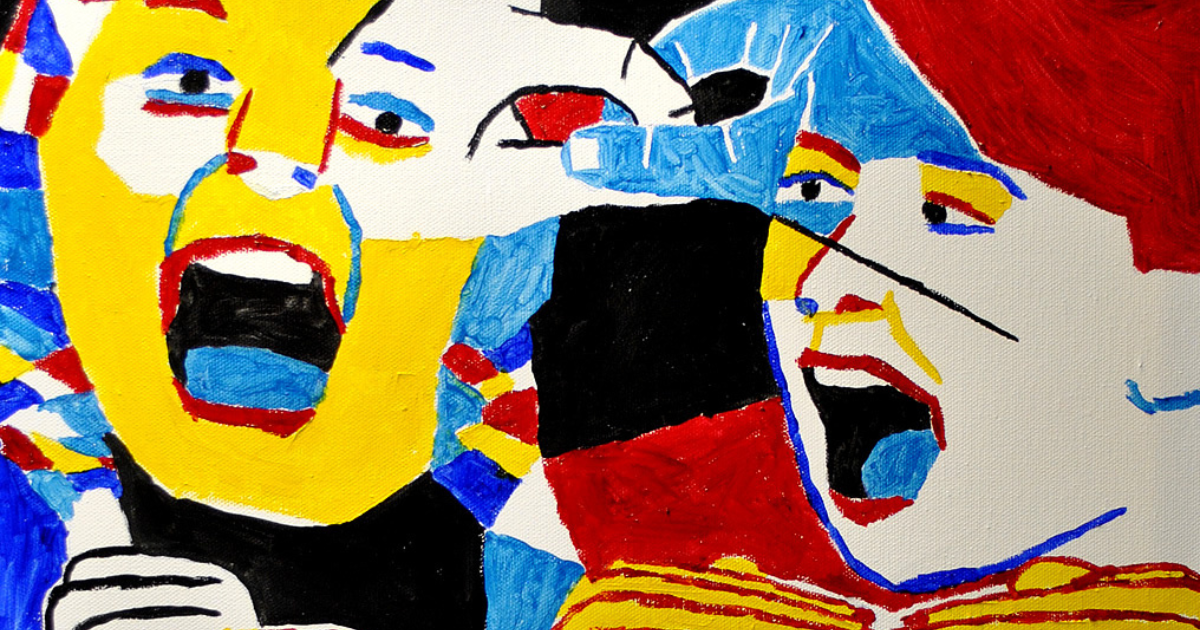Voices, edited for convenience
How forced adaptation in translation works and why even the subtlest meanings are easily lost on the way to a Western reader3

The world of translation seems to be organized not horizontally but vertically, like a staircase. And near the top of that staircase are almost always texts written in English. English-language literature is translated in dozens of countries, read widely, discussed, and analyzed. Voices from the periphery, on the other hand, are often forced to undergo a process of “adaptation” before being heard: to simplify, to explain, to make themselves more understandable. As if the value of their experiences and perspectives directly depended on their ability to appeal to a central, universal reader – the one who lives in the West.
The hierarchy of languages
If we imagine the world of texts as a global marketplace, then English is the only fully convertible currency. Everything is translated into English, but rarely from it into other languages. English has become the universal “language of access,” the gate through which ideas must pass to reach an international audience. It’s also the language many authors choose to write in, even if they live in different parts of the world.
But there’s a flip side. To enter the English-speaking space, authors from the “periphery” face certain demands: to be understandable, to write more simply. To eliminate cultural realities that might be unfamiliar. To explain context, sometimes in such exhaustive detail that the text becomes more like commentary on itself.
This is, essentially, forced adaptation, where the author’s style, language, and imagery are modified not for accuracy, but for convenience. Where complexity becomes the privilege of the “center,” and clarity becomes the obligation of the “edges.”
That’s how we end up with Ukrainian, Arab, Chinese, Russian, and Uzbek texts being rewritten in ways that won’t “scare off” the Western reader.
Cultural realities
When working with culturally specific references, translators typically rely on three main strategies: substitution, omission, or insertion of explanation. These gestures have long been considered standard in literary translation, especially when dealing with fiction. The result is a text that becomes a little more polished, but also loses some of its original tone and texture.
The first approach is substitution. For example, “bazar” becomes market, “bogatyr” becomes hero, and “dvoryanin” turns into nobleman. It may seem clear enough, but the sound, context, and cultural depth are lost. When we turn a “grandmother in a headscarf” into “an old lady,” we lose the rhythm, the smell, the very atmosphere of the scene.
The second approach is omission. This often applies to food, household items, or other local details. “Shchi” becomes “soup,” “samovar” becomes “tea,” and “borscht” might disappear altogether. It may seem trivial. But these tiny elements form the cultural code. Without them, the story may be smoother, but it also becomes less alive.
The third approach is insertion – the attempt to explain. Sometimes directly in the text, sometimes in a footnote, sometimes silently, through a translator’s invisible edit that turns them into a kind of co-author. This may seem like the most delicate method, but it’s not harmless either. Because every explanation is an act of power redistribution: more trust is placed in the reader than in the author. The author must be clarified; the reader must be protected from confusion.
The rhetoric of concession
Translation is always a matter of choice. But when the choice is preordained, it ceases to be an act of understanding and becomes an act of submission. With each clarification, substitution, and explanation, the text loses something intangible: its tone, its rhythm, and most importantly, its right to speak in its own voice.
To restore that voice to those who are accustomed to being edited, perhaps we need to learn to listen to what is complex, unedited, and unfamiliar. To stop fearing what we don’t immediately understand and allow texts to speak on their own frequencies, even if they don’t perfectly match someone else’s scale. Because true universality means everyone gets to be different, and still be heard.


